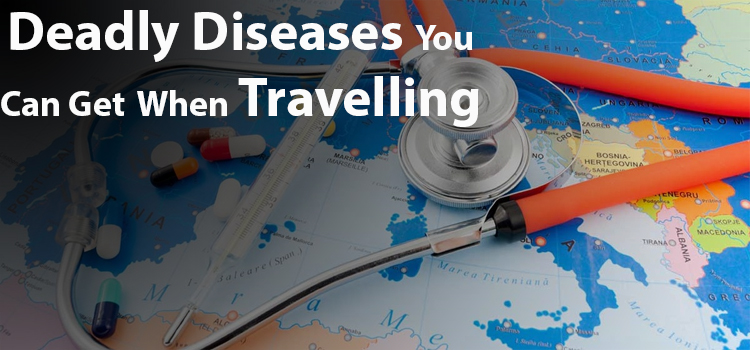With the coronavirus outbreak, or COVID19 as it is formally known, we have seen disruption on a global scale. Businesses and tourist centers have ground to a halt. People are walking the thin line between prudence and paranoia. Especially the ones traveling abroad. But while precautionary measures when traveling is important, COVID19 isn’t all you have to worry about. There are several other dangerous traveling diseases that you need to watch out for. Read on to find out more.
5 Traveling Diseases to Watch Out For
Of course, thanks to globalization, and ease of international access, the world has seen a boom in travel. Whether you’re on your way to a business conference to Davos, or to a honeymoon in Beirut, traveling has never been easier than it is today. But at the same time, eased travel restrictions have also offered traveling diseases more vectors to spread. A single infected traveler can carry a virus or disease and spread it exponentially. Sobering thought, isn’t it? Here are 5 diseases you should be watching out for:
- Ebola
- Dengue Fever
- Schistosomiasis
- Malaria
- Yellow Fever
Let’s examine these in more detail below.
Ebola
Ebola was once a remote disease and was easily contained in a few isolated areas. However, all that changed in March 2014 when the Ebola outbreak happened. Ebola now poses a risk to 5 countries. It’s symptoms include:
- Rashes.
- Fever.
- Vomiting.
- Bloodshot eyes.
- Diarrhea.
- Internal bleeding.
- External bleeding.
Ebola can spread from person to person through an exchange of body fluids like blood, saliva, or semen. The disease has a staggering 90% mortality rate, with no known vaccine. Regular hand sanitization and protective clothing can help you avoid contracting it.
Dengue Fever
Dengue fever is a virus spread by mosquitoes in many parts of the world. With no treatment or vaccine ready yet, your only course of action is to protect yourself from mosquito bites. Covering up with clothes that leave less skin bare and using bug repellent can help keep you safe. Dengue symptoms can include:
- Pain in the eyes.
- Muscular and joint pain.
- Headaches.
- Fever.
- Nausea.
- Vomiting.
There are 4 known types of dengue fever. Contracting one of them makes you immune to it in the future. But you can still be infected by one of the other three strains.
Schistosomiasis
This is a particularly nasty traveling disease. It is caused by a parasitic worm that latches onto freshwater snails. These snails then release the worms into water sources like ponds, lakes, and rivers. The Schistosoma worm can then enter your body through the skin. While not all infected people develop symptoms, they can include:
- Muscle aches.
- Fever.
- Coughing.
- Chills.
Schistosomiasis currently has no known vaccine. But it can be effectively treated with praziquantel in a couple of days at most.
Malaria
Another mosquito-spread disease that is well-known for being severe is malaria. The female Anopheles mosquito can carry the disease and spread it when it feeds on blood. In 2012 alone there were more than 200 million malaria cases according to the WHO. Malaria symptoms can include the following:
- Flu-like symptoms
- Extremely high fevers
- Chills
- Shaking
Untreated malaria can result in death in severe cases. Malaria does not have a licensed vaccine but can be treated with a variety of drugs. Covering up, using bug repellent, and using bed nets can help you avoid getting a malaria infection.
Yellow Fever
Yet another mosquito-borne traveling disease is yellow fever. In severe cases, around 15% of infected people can develop dangerous complications like organ failure, shock, or even death. Yellow fever can have the following symptoms:
- Muscle pain
- Backache
- Headache
- Chills
- Fever
- Jaundice
While there is no treatment, there is a vaccine available. The trick is you need to get it at least 30 days before you travel into an area with a high risk of yellow fever.
Conclusion
It is understandable and prudent to want to get tested for COVID19 after traveling recently. But you should also give some thought to getting tested for the above diseases as well. Sometimes the symptoms of Coronavirus can seem like the flu or side effects of smoking but can turn out to be deadly. Practice good body hygiene and always be cautious, especially while traveling. You don’t want to be a victim of any of these diseases.




